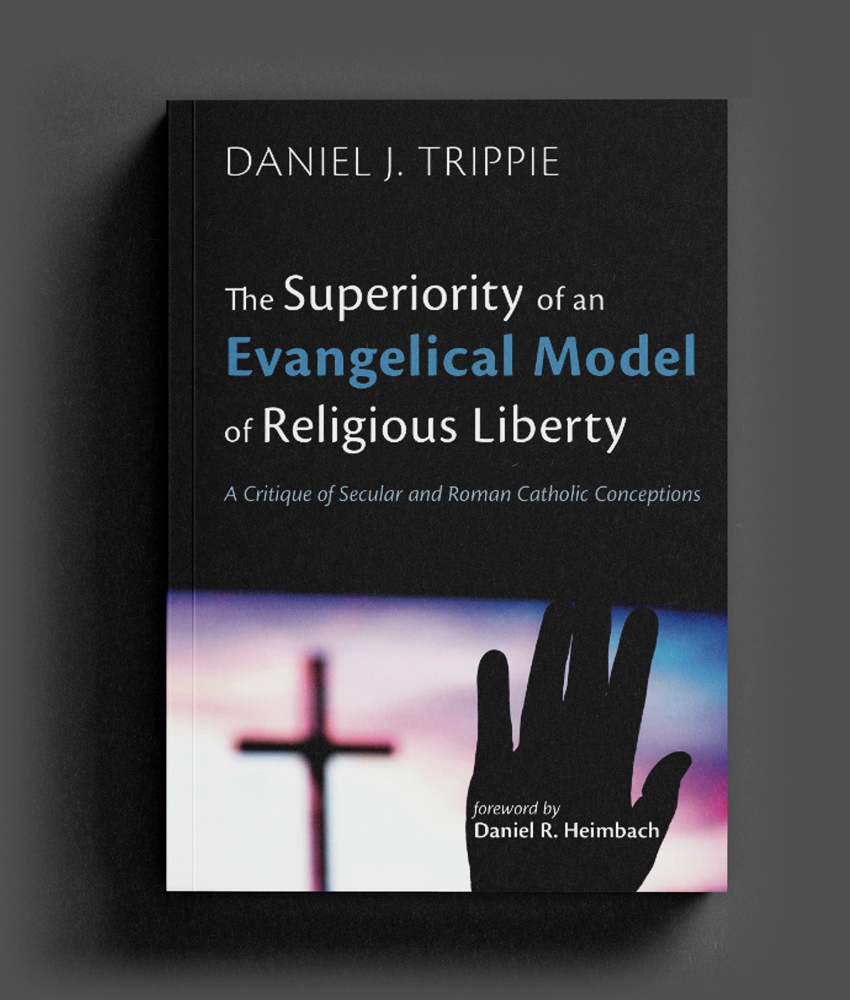Election season is challenging —especially in a polarized culture. Among the many election season challenges is the reality that we are faced with flawed candidates. Candidates are sinners; therefore, the flaws in both may cause some Christian voters to feel uneasy about engaging in our political process.
Nevertheless, voting is a significant instrument allowing Christians to exercise their prophetic voice. One must recognize that while it seems the choice is between two imperfect choices, national elections encompass far more than just the candidates themselves; they involve entire administrations, platforms, think tanks, and the authority to appoint heads of bureaucracies. National elections create a collective power that extends beyond any single individual. A deeply flawed candidate may very well nominate virtuous individuals to positions of power. Conversely, a virtuous candidate could inadvertently appoint someone of poor character, given the vast number of appointed positions within the federal bureaucracy. Consequently, the election process is more complicated than simply voting for two imperfect candidates.
However, candidates in local elections have more significant opportunities to influence policy directly. The candidate who knocks on your door is likely the same person responsible for crafting and implementing that policy. Thus, local elections are more straightforward, allowing voters to emphasize the importance of the individual candidate.
Instead of approaching elections as a mere binary choice, perhaps the trinitarian framework found in Christian ethics can help voters think theologically before casting a ballot. By examining voting through the lens of conduct, character, and end goals, Christians are able to navigate electoral decisions when faced with less-than-ideal candidates.
Conduct: What is the act of voting?
Politics is the organization of communal life under God-ordained leadership. Although Scripture doesn’t mandate a specific governmental structure, it does call for societal order that promotes the well-being of all individuals. The Bible instructs that our shared existence should be arranged to foster universal flourishing and justice for all.
God empowered and commissioned humans as His representatives on Earth. As God’s viceroys, humans are called to spread goodness and cultivate flourishing throughout creation (Genesis 1:28). Representative government uniquely enables Christians to fulfill this vocation through the act of voting. Therefore, representative government can serve as an extension of the Christian’s divine mandate to represent God.
Moreover, humans are distinct from other creatures because of our status as image bears. While image-bearing entails many particular qualities, autonomy is a preeminent faculty. Humans are uniquely equipped with a will, which animates our power to choose. Thus, humans can exercise their status as image-bearers when they vote.
Representative government presents a distinct dilemma for Christians, particularly when choosing between deeply flawed candidates. The key question becomes: What is the degree and distance between the representative and the represented? The Old Testament provides numerous examples of representation and substitution. While some representative relationships were intimate and direct (such as the High Priest wearing the names of the tribes, Exodus 28:9-12, or the kinsman-redeemer acting for a deceased family member), others maintained significant distance (like the ram substituted for Isaac, Genesis 22:13, or the scapegoat bearing the people’s sins, Leviticus 16:10).
When examining the representative relationship in voting, a substantial distance exists between the representative and the represented, as no single candidate perfectly embodies the exact worldview and beliefs of any represented constituent. The relationship is not one-to-one, suggesting that citizens can support a candidate who represents their position on certain issues while diverging from others. Furthermore, given the complexity of human personality, voters may support a candidate despite disagreeing with or disliking aspects of their character. Thus, casting a vote does not imply direct responsibility for every decision the representative makes, nor does it constitute a complete endorsement of the candidate’s personality.
In the same way God allows Christians to serve as imperfect agents for His Kingdom, Christians can approach voting as an imperfect yet meaningful exercise of agency, promoting policies that advance human flourishing while rejecting those that perpetuate evil. Through voting, Christians can extend their prophetic voice, communicating God’s justice and righteousness to the world.
In the act of voting, Christians acknowledge Christ’s ultimate representation. Their vote can serve as a declarative bridge, proclaiming the sufficiency and fullness of Christ’s perfect representation.
Virtue: How is Virtue Formed?
The Gospel accomplishes what the law could not—heart change. Election season reminds us that laws are limited; laws cannot make people love their neighbors. Yet, Christians can practice neighbor love through our political dialogue.
Christian voters can nurture the Fruit of the Spirit during election season in several ways. First, we can patiently seek to understand how and why people hold particular views. One of the greatest conflations in our polarized culture is equating understanding with agreement.
Understanding another’s political views and reasoning doesn’t require agreement or demand we sacrifice our convictions. Rather, patient listening acknowledges that the person before me bears God’s image. The imago dei compels me not to “other” the other.
Second, we can nurture self-control by listening to the logic underlying different views. Sociologist James Davison Hunter argues that cultural logic, more than analytical reasoning, animates political ideas. As image-bearers of God, we are hard-wired with moral intuitions. Yet these intuitions, apart from the Holy Spirit’s work through special revelation, often become misdirected. Sin’s distortion of the moral mind can make even the most misguided ideas seem perfectly reasonable within a fallen cultural narrative. Therefore, Christians can cultivate self-control by being “slow to speak, quick to listen, and slow to anger” (James 1:19), seeking to understand what matters most to those across the political divide and providing a lens into their worldview and beliefs.
Moreover, political dialogue offers Christians a unique opportunity to cultivate the fruit of kindness. The Apostle Paul was no stranger to political discourse, declaring Jesus as King before Felix, Agrippa, and Caesar. Yet Paul commands disciples to “be wise in the way you act toward outsiders; make the most of every opportunity. Let your conversation be always full of grace, seasoned with salt, so that you may know how to answer everyone.” (Colossians 4:5-6) Consequently, election season can provide fertile apologetic ground when we display Christ’s loveliness in our political discourse, as those who disagree with us have an avenue to share their beliefs, they otherwise would be precluded from doing so in other cultural contexts.
A contentious election cycle can cultivate peace in the Christian’s soul. In The City of God, St. Augustine recognized that believers and unbelievers share the same space for a time (Matthew 13:24-30). He understood that Christians must tolerate certain evils in this age. Yet, contrary to modern notions of tolerance, biblical tolerance does not require believers to suspend judgment concerning right and wrong. Tolerance, by its very nature, acknowledges that something is evil but may not be corrected in the current age.
Thus, Christians can find peace knowing that the political process is both limited and temporary. In this present age, Christians are promised neither total victory nor total defeat as history unfolds. We do well in maintaining a sober-minded realism, acknowledging sin’s persistent presence while resting in the assurance that God’s kingdom will one day fully come. In the meantime, we are called to be faithful to Christ’s teaching and to “speak the truth, in season and out of season.” (2 Timothy 4:2) We practice peace as we hopefully await heaven’s perfect reality to be fully realized on earth. Thus, Christians can approach each election cycle with peaceful realism, knowing that the wheat and weeds grow together only for a season.
Goal: What Do I Want to Achieve with My Vote?
Voting for Christians has a telos—its ultimate aim is to bring Christ’s goodness to every sphere of life. The Christian’s vote should flow from love for the flourishing of all people. Scripture guides us in this: “Do good to all people, especially to those who belong to the family of believers,” (Galatians 6:10) and “Do not withhold good from those to whom it is due, when it is in your power to act.” (Proverbs 3:27) Our vote becomes one means through which we can enact good for others.
Nevertheless, our modern two-party system presents Christians with a complex dilemma. Neither Republican nor Democratic platforms fully align with Christian ethics; both contain policies contradicting scriptural commands. Thus, faithful Christians must think prayerfully and soberly about the long-term consequences of platforms and policies incorporating evil.
In his commentary on Luke, John Calvin argues that while all evil is equally damnable before God, not all evils are equally destructive to social order (Luke 12:47-48). Since both political platforms are stained with sin, Christians must evaluate each according to its potential impact on God’s created order (Life, Family, Work, and Creation). Policies that are aimed at reordering or undermining creation ordinances will bring more significant destruction than policies such as trade, public works, and even to some degree, tax policy (although tax policy can be incredibly destructive to human flourishing). Consequently, Christians’ aim in voting is to direct social conditions toward the “good,” with an understanding that it will only be “so good.”
Finally, keeping Christ first in election season requires protecting one’s conscience. As citizens of an earthly kingdom, Christians ought to express their voices using the tools in our context, which include voting, lobbying, and persuading.
As citizens of a kingdom to come, Christians must not violate their conscience. The Christian conscience, shaped primarily by Scripture and empowered by the Holy Spirit, serves as the faculty through which we commune with God. The Apostle Paul offers impassioned arguments about preserving the integrity of one’s conscience. (Romans 14:23, Titus 1:15, 1 Timothy 4:1-2). When confronted with two sinful candidates and platforms, one may rightly discern that voting for either would violate their conscience. Under such circumstances, abstaining from voting, voting for a third party, or writing someone in is not sinful and can also serve as a prophetic call for society to promote better candidates in the future.
In conclusion, keeping Christ preeminent in election season requires Christians to resist the disjunctive illusion of binary thinking. While our two-party system conditions us toward either-or decisions, Christians are called to embrace a trinitarian model of voting—one that weighs the act itself, the character it forms in us, and its long-term consequences for God’s kingdom.










3 Replies to “Voting In A Broken World”
Thank you for writing this article, I believe every person should see this so I will be sharing this publicly. God’s blessings.
Thank you, Susan
Thank you for this thoughtful commentary Dan. I find insight and wisdom herein.